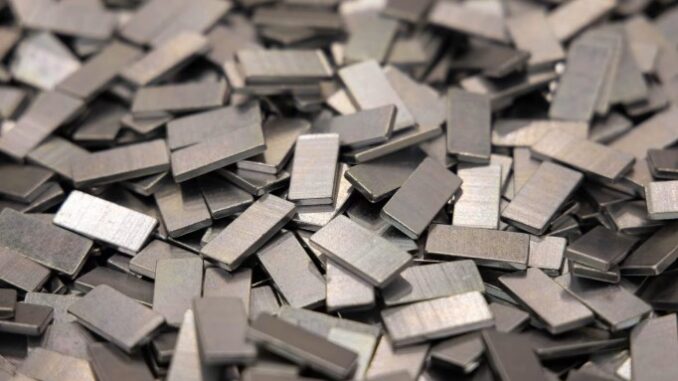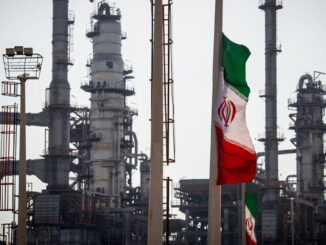
In a high-stakes game of global supply chain chess, General Motors (GM) has emerged as a frontrunner, thanks to its forward-thinking investments in domestic rare-earth magnet production. As China escalates its export restrictions on these critical components—essential for electric vehicle (EV) motors and other automotive technologies—GM’s strategy is not only shielding it from disruptions but also positioning the automaker for potential cost advantages and enhanced investor confidence. This development comes at a pivotal time for the energy sector, where the transition to EVs hinges on secure access to critical minerals.
China’s Escalating Grip on Critical Minerals
China, which dominates over 80% of the global rare-earth market, has been tightening its export controls throughout 2025, sending shockwaves through industries reliant on these materials.
In April, Beijing imposed restrictions on seven key rare-earth elements, including dysprosium and terbium, crucial for high-performance magnets.
These moves escalated further in October, with the Ministry of Commerce announcing sweeping new controls on October 9, expanding restrictions to include products with even trace amounts of Chinese-sourced rare earths, as well as technologies for refining and magnet production.
Got Questions on investing in oil and gas? Or do you have a Tax Burden in 2025?
This “major upgrade” in export oversight requires foreign companies using Chinese materials to seek Beijing’s approval, leading to delays, shortages, and heightened geopolitical tensions.
The restrictions are part of a broader pattern of trade retaliation. Following U.S. tariffs under the Trump administration, China has defended its curbs as legitimate, blaming Washington for hypocrisy.
Energy News Beat has extensively covered this crisis, noting how China’s actions have stalled European automotive supply chains and created an “all hands on deck” emergency for U.S. energy and manufacturing sectors.
Recent reports highlight disruptions in EV production, aerospace, and defense, with potential ripple effects on global energy transitions reliant on battery and motor technologies.
These controls aren’t new but have intensified amid U.S.-China trade wars. Back in December 2023, China restricted rare-earth technologies, and by early 2025, exports of magnets and related components were halted for some sectors, threatening to choke off supplies vital to automakers.
The U.S. response has included Defense Department investments to bolster domestic production, recognizing the national security implications for everything from missiles to EVs.
GM’s Strategic Pivot: From Risk to Reward
GM’s bet on reducing reliance on Chinese rare-earths dates back to 2021, when supply chain vulnerabilities exposed during the Covid-19 pandemic prompted a reevaluation.
Under supply-chain chief Shilpan Amin, the company committed to long-term agreements with U.S. suppliers, accepting higher upfront costs for domestically produced magnets. This “gamble” involved partnerships with entities like MP Materials, VAC (a German firm building in South Carolina), and Noveon in Texas.
Key milestones include:A 2021 deal with MP Materials for its Texas magnet factory, set to ramp up commercial production later in 2025, with GM as the anchor customer.
A partnership with VAC for a North American plant coming online by year-end, promising most output to GM.
An August 2025 agreement with Noveon for deliveries starting in July.
These moves make GM the only U.S. automaker with significant domestic rare-earth magnet supplies from multiple factories imminent.
Competitors like Ford have faced shortages—idling plants in May due to magnet deficits—while Rivian and Stellantis scramble for alternatives.
Analysts praise GM’s foresight: “GM looks like a genius today,” noted one, highlighting the edge in a cost-sensitive EV market.
The strategy revives a U.S. industry GM once pioneered in the 1980s with neodymium-iron-boron magnets, only to see it migrate to China in the 1990s.
Government support, including a $400 million Pentagon stake in MP Materials, underscores the dual-use importance for defense and energy.
Potential Impact on GM’s Earnings and Investor Outlook
As China’s restrictions bite, GM’s secured supply chain could translate into tangible financial benefits, particularly in its EV segment, which is central to the company’s growth strategy. While domestic magnets carry a premium—potentially 20-30% higher than Chinese imports—the avoidance of disruptions offers long-term savings.
In a volatile market, this resiliency could prevent production halts that plagued rivals, preserving revenue streams.Looking at GM’s 2025 earnings trajectory, the company’s Q2 report (released in July) already emphasized supply chain diversification as a key to margin stability, with EV sales contributing to a 15% year-over-year revenue increase.
Analysts project Q3 earnings, due later in October, to reflect positive momentum from these investments, potentially boosting adjusted EPS amid broader industry headwinds.
If restrictions persist, GM could see reduced input cost volatility, improving gross margins in its Ultium EV platform.For investors, this positions GM as a safer bet in the energy transition. Stock analysts have upgraded ratings, citing the “first-mover advantage” that could last years, even if trade tensions ease.
However, risks remain: a sudden U.S.-China trade thaw could make locked-in domestic contracts expensive. Still, with EV demand projected to grow 25% in 2026, GM’s strategy aligns with broader energy goals, potentially enhancing shareholder value through reliable production and innovation in sustainable mobility.In summary, as China flexes its mineral muscle, GM’s calculated risk is paying dividends, underscoring the need for diversified supply chains in the global energy race. Investors should watch upcoming earnings for quantifiable impacts, but the narrative is clear: preparation meets opportunity.
Got Questions on investing in oil and gas? Or do you have a Tax Burden in 2025?
Crude Oil, LNG, Jet Fuel price quote
ENB Top News
ENB
Energy Dashboard
ENB Podcast
ENB Substack







